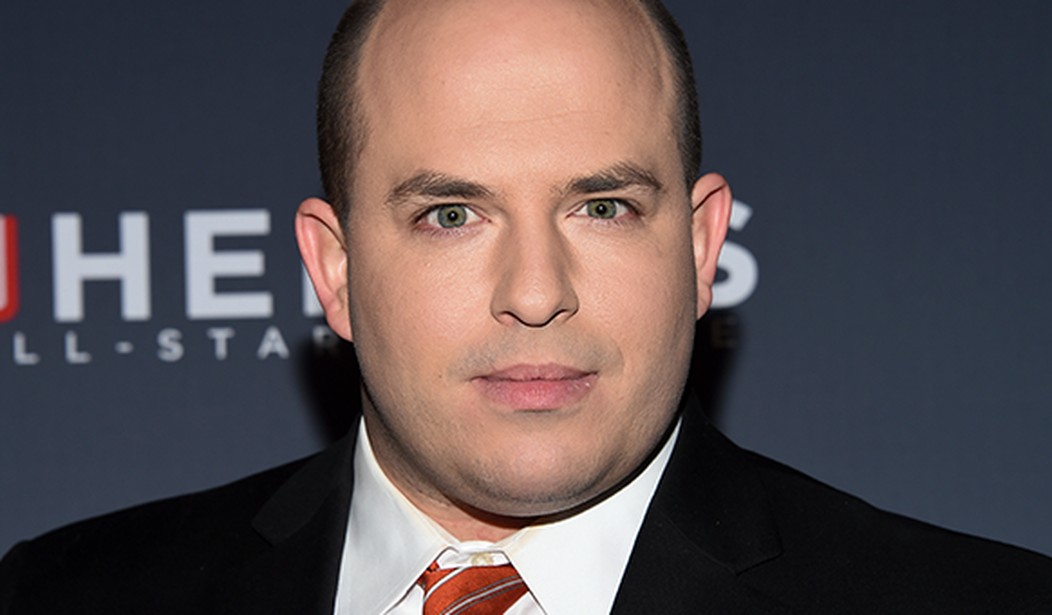When media outlets called the election for Joe Biden last month, hardly anybody seemed happier or more relieved than the reporters.
CNN’s “chief media correspondent” Brian Stelter, following the lead of an ABC reporter, performatively turned off his Trump tweet notifications on live television. Other media-types were overcome with emotion after an AP photographer took a picture of Trump standing near an “Exit” sign. “Amazing work,” tweeted a Washington Examiner reporter in response. “[G]reat, brave journalism” wrote the Columbia Journalism Review highlighting the photo, though the publication noted elsewhere that there’s still a need for improvement in the profession. “[J]ust because [Trump] lost,” one article cautions, “doesn’t mean we didn’t mess some things up.”
Such brazen bias might have been surprising in elections past, but it shouldn’t be by now. The myth of “objective journalists” seeking to report events fairly from both sides has been so thoroughly smashed in the Trump years that even the journalists themselves seem to have dropped the act.
Since 2016, the media has instead espoused, more and more openly, the ideology of elitism — which my late friend Jeff Bell defined in his book, Populism and Elitism, as “optimism about the decision-making ability of one or more elites, acting on behalf of other people,” coupled with a pessimism about people’s ability to make such decisions themselves.
While journalists have always formed a kind of professional elite, the nature of their profession held them for a while to keep up at least the pretense of populism. Their job was to provide people with facts, especially the kinds of facts other elites would rather remain hidden, so that the people could make decisions based on this information.
This vision of journalism, while never perfectly adhered to, seems to have fallen completely out of vogue since the 2016 election, replaced by one where journalists openly arrogate to themselves the power to make decisions for the people on contentious political issues. They blamed themselves for Trump’s victory in 2016 and vowed to do better.
Recommended
People had seen what Trump had to say at his rallies, and they liked it. So the media promised to stop airing his remarks in full, or without sufficient editorialization. People had heard about Hillary Clinton’s scandals and decided they were disqualifying. So journalists vowed to de-emphasize Trump’s opponents’ scandals in favor of even more coverage of the Trump foibles they deemed more serious.
The most blatant example of this shift was, of course, the media’s highly effective blackout of the evidence from Hunter Biden’s laptop this past fall. According to one poll, nearly half of Biden voters never even heard the story. Media outlets insisted at the time that they couldn’t cover the story, even after it was verified, because it was a “distraction.” Distracting, presumably, from wild-eyed insinuations that the Trump administration was stealing mailboxes.
One writer for the Columbia Journalism Review fretted early on in the Biden-Ukraine scandal that relaying each side’s arguments could be dangerous — “Biden says X, Trump says Y,” the author explained, was “insufficiently authoritative framing.” The author further warned that even using words like “corruption,” “investigation,” “nepotism,” or “sleaze,” in connection with Biden might negatively affect people’s perception of him, which, for unexplained reasons, was not allowable.
Journalists couldn’t cover the scandal, the argument seemed to go, because, if they did, people might decide that on balance they preferred Trump, which would be wrong. So they didn’t cover it, except perhaps to obliquely label it “Russian disinformation,” or to defend the social media crackdown, as one article on the New York Times’ front page did the day after the Biden-Ukraine story broke.
Or look at the coverage of evidence of potential voter fraud. Four years after accepting the Russian-tampering narrative without evidence, journalists now claim that their job is to affirm the election’s integrity as a matter of unassailable dogma. Even when the central claims of Republican allegations are confirmed, they are labelled as “unsubstantiated,” “false,” “fantastical” “lies.”
For the most part, our media elites really do seem to believe the things that they’re saying. They don’t think the Biden scandal was a big deal, and they really are irrationally certain that election fraud is impossible. They’re simply pessimistic that the public, given both sides’ arguments and an even-handed framing, would come to these “correct” conclusions too.
The reasons for this disconnect are numerous. Matthew Yglesias points out that the media has “become dominated by young, big city college grads at just the time politics is increasingly polarized along those lines.” That’s true, but the problem isn’t merely the pure demographics of the contemporary newsroom. It’s the pervasive belief among these young, big-city college grads in elite professions that they have been granted a special authority to shape the lives and thoughts of the rest of the country.
In unguarded moments, some make these arguments explicitly. The same CJR author as above recently warned journalists not to assume too hastily that “Trump’s [power] is ebbing, and that the media is reclaiming its rightful ability to set the agenda.” The idea that agenda-setting belongs primarily to journalists by right is simply taken as given.
“Journalism,” the British essayist G. K. Chesterton once wrote, “possesses in itself the potentiality of becoming one of the most frightful monstrosities and delusions that have ever cursed mankind. This horrible transformation will occur at the exact instant at which journalists realize that they can become an aristocracy.”
In other words, it happens when they decide to become elitists. Judging by the media coverage of the past four years, our nation’s journalists already have. And that’s bad news for America, no matter how they report it.
Frank Cannon is president of American Principles Project. You can follow him on Twitter @frankcannonAPP.

























Join the conversation as a VIP Member